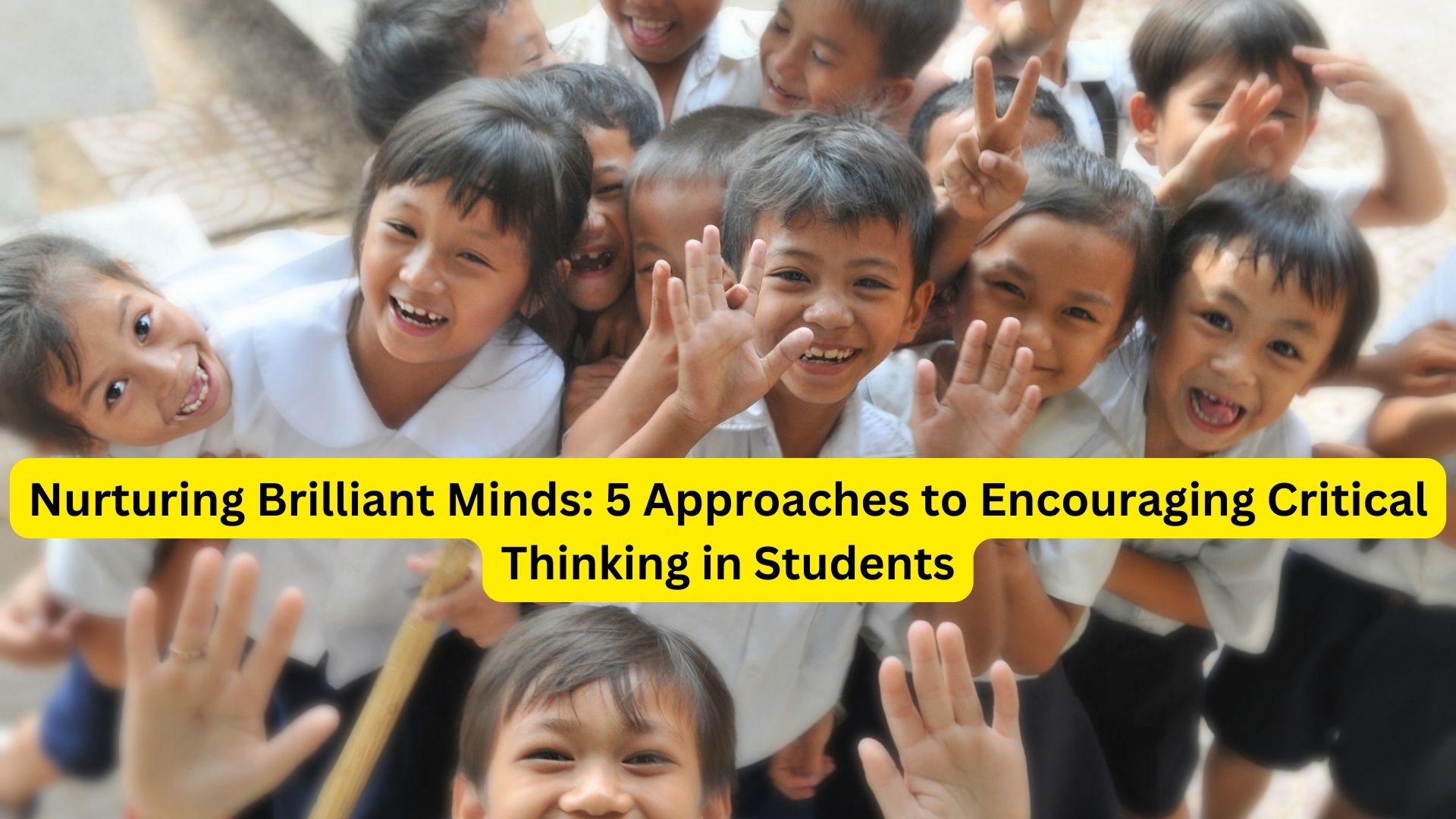
In the ever-evolving landscape of education, the cultivation of critical thinking skills has become of utmost importance in preparing students to navigate a complex world. Within the realm of education, the focus on nurturing sharp intellects takes center stage.
The nurturing of sharp minds goes beyond conventional rote learning; it involves creating an environment that promotes inquiry, analysis, and independent thought. This dynamic curriculum places a strong emphasis on not only the absorption of information but also on the development of critical thinking skills that empower students to engage with knowledge in a profound and transformative manner.
Let’s explore five effective approaches aimed at equipping learners with the intellectual tools necessary to address challenges, make informed decisions, and thrive as analytical thinkers in an increasingly dynamic global society.
- Encourage Questioning
Promoting a culture of questioning plays a pivotal role in nurturing critical thinking, curiosity, and a deeper understanding of subjects. This approach is designed to stimulate curiosity, ignite interest, and cultivate a genuine passion for learning. By actively engaging with the material through questioning, students take ownership of their education.
Encouraging students to ask questions prompts them to think critically about the subject matter. They learn to assess information, analyze concepts, and gain a deeper understanding of the underlying principles.
- Embrace Diverse Perspectives
Embracing diverse viewpoints is fundamental to fostering a holistic and enriching learning environment. Placing a strong emphasis on inclusivity and acknowledging the diverse backgrounds, experiences, and perspectives of students is crucial. This inclusive approach ensures that every student feels valued and can actively participate in the learning process.
The curriculum should be designed to have global relevance, exposing students to a wide range of cultural, historical, and societal contexts from around the world. This exposure encourages students to appreciate and respect different ways of thinking, ultimately leading to a more comprehensive understanding of the world.
- Focus on Problem-Based Learning
Problem-Based Learning is a highly valued instructional approach that encourages active engagement in the learning process. Instead of passively receiving information, students are presented with real-world problems or scenarios that demand critical thinking, analysis, and problem-solving skills to resolve. This hands-on approach promotes a deeper understanding of the subject matter.
- Promote Peer Collaboration
The curriculum should encourage cooperative learning environments where students work together on tasks, projects, and assignments. This collaborative approach fosters a sense of community within the classroom, where students actively engage with their peers to achieve common learning goals.
Peer collaboration brings together students with diverse backgrounds, experiences, and perspectives, enriching the learning environment. This diversity enables students to gain insights from one another and approach problems from different angles. It encourages them to appreciate different viewpoints, enhancing their critical thinking abilities.
- Provide Timely Assessment and Feedback
A strong emphasis should be placed on providing continuous and constructive feedback to students. Assessments should not only focus on assigning grades but also on offering specific insights into a student’s thought process, reasoning, and problem-solving approach.
Teachers should concentrate on highlighting areas of strength and areas that need improvement, enabling students to better understand their thinking patterns. Promoting critical thinking in students is not just about preparing them for academic success, but also for a future where adaptability, problem-solving, and informed decision-making are paramount.
Also Read
Managing Your Child’s Screen Time: Strategies for Reducing Excessive Phone Use
By implementing these strategies, educators can equip their students with invaluable skills that will serve them well in all aspects of life.
